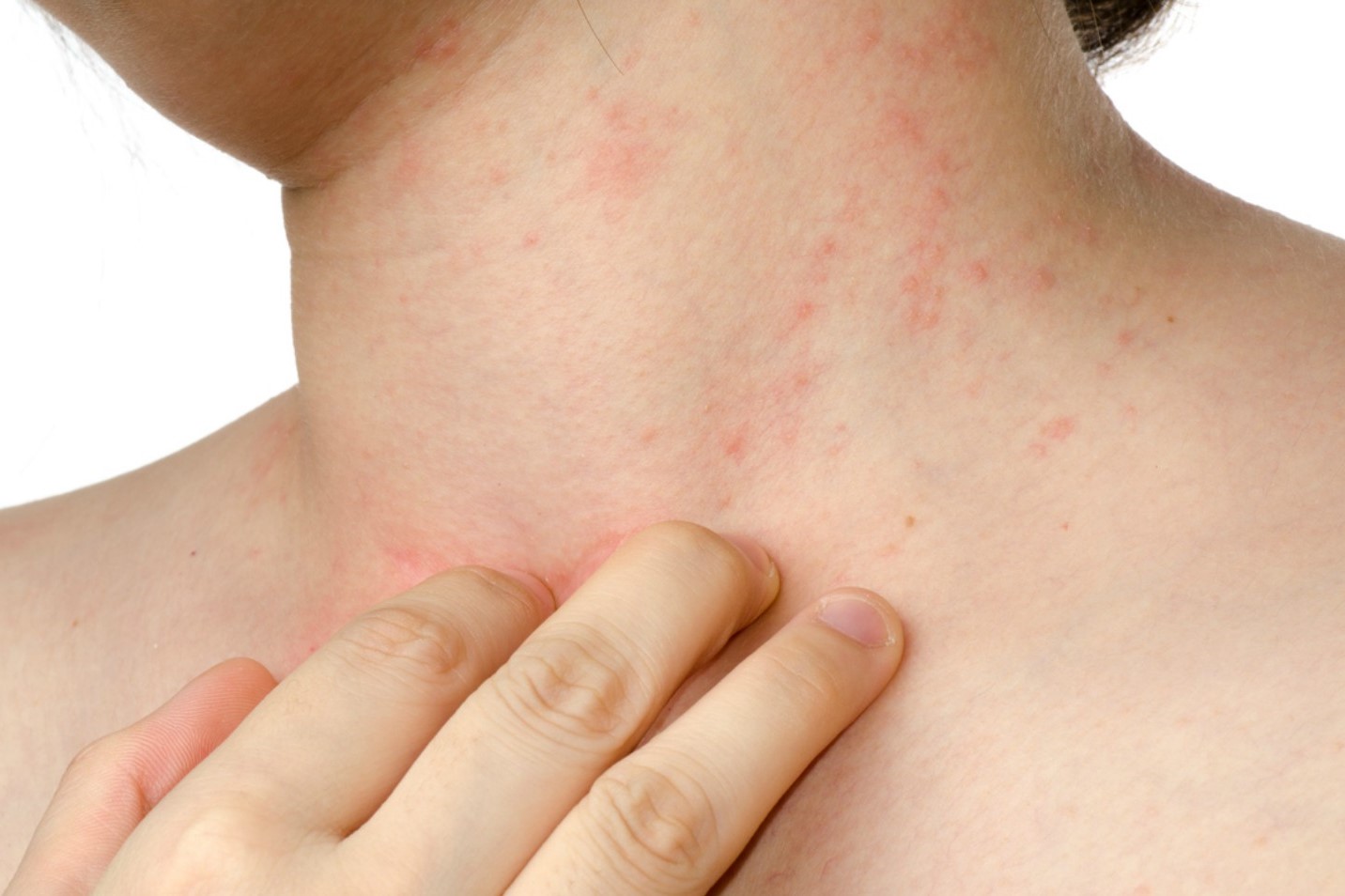
Cold urticaria: symptoms and prevention
Let’s talk about cold urticaria. When temperatures drop significantly, in the colder winter months, in addition to dry skin and redness, more severe reactions can develop, such as hives, also commonly – but erroneously – known as ‘cold allergies’
Often affecting patients suffering from other allergic or autoimmune diseases, however, this is not a true allergy as the cold induces an indirect reaction in the skin.
In some predisposed individuals, in fact, the drop in temperature causes the formation of autoantigens in the skin, which stimulate the release of histamine, the substance responsible for the characteristic symptoms of urticaria.
Itching and oozing: symptoms of cold urticaria
Cold urticaria is manifested by the onset of specific skin symptoms, in particular reddish, itchy pomphi.
The main manifestation of urticaria is itching, a symptom that can be disabling and distract the patient from daily tasks and disturb his or her sleep.
In addition, the pomphi do not only appear in areas exposed to a lower temperature (usually the face and hands), but can also affect other areas of the body and occur after ingesting particularly cold food or drink or touching cold surfaces.
The pomphi may occur intermittently and last up to 24 hours.
The symptomatology of cold urticaria, if severe, may manifest itself with systemic symptoms, such as
- fatigue
- headache
- hypotension
- wheezing or laboured breathing.
Symptoms of cold urticaria may persist, in an alternating pattern, for several weeks and may also be associated with other types of urticaria, e.g. idiopathic urticaria.
Cold urticaria: who does it affect?
The temperatures at which urticaria is triggered are very variable from individual to individual, which is why it is not possible to determine a specific temperature above which cold urticaria can develop.
In most cases, a temperature low enough to trigger the urticaria reaction is around 4°C, but in the case of extremely sensitive patients even temperatures just below 20°C can be a risk.
Cold urticaria particularly affects the female sex, between 20 and 40 years of age, and people who have developed a condition of psychophysical stress.
Risk factors do not, however, include familiarity.
Cold urticaria: how is it treated?
Cold urticaria is diagnosed by a dermatologist, for whom a history of the condition is particularly useful for diagnosis.
It is therefore advisable to take note of the episodes of urticaria, from the activities performed at the time of the onset, to the duration of the episodes, to the complete symptomatology.
Treatment for cold urticaria then involves taking second-generation antihistamines, which can be modulated according to the clinical needs of the individual patient.
These drugs are only prescribed by the specialist, which is why it is important to refer to a dermatologist and not just to a consultation with your general practitioner to solve the problem.
To prevent cold urticaria, it is necessary to avoid exposure to cold temperatures and, if unavoidable, to take care to cover as much of the skin as possible.
Thus, it is advisable to cover the skin of the neck well with a scarf, have a hat that also protects the ears and always wear gloves.
It is also important to reduce exposure time to lower temperatures and avoid ingesting food or drink that is too cold.
Read Also
Emergency Live Even More…Live: Download The New Free App Of Your Newspaper For IOS And Android
What Is Urticaria (Hives)? The Role Of Histamine And How To Intervene
Exposure To Cold And Symptoms Of Raynaud’s Syndrome
Anaphylactic Shock: What It Is And How To Deal With It
Psoriasis: What It Is And What To Do
Respiratory Or Food Allergies: What Is The Prick Test And What Is It For?
Wasps, Bees, Horseflies And Jellyfish: What To Do If You Get Stung Or Bitten?
Psoriasis, An Ageless Skin Disease
Psoriasis: It Gets Worse In Winter, But It’s Not Just The Cold That’s To Blame
Childhood Psoriasis: What It Is, What The Symptoms Are And How To Treat It
Topical Treatments For Psoriasis: Recommended Over-The-Counter And Prescription Options
What Are The Different Types Of Psoriasis?
Phototherapy For The Treatment Of Psoriasis: What It Is And When It Is Needed
Urticaria Affects At Least 1 In 5 People: What It Is And How To Treat It
Seasonal Illnesses: What To Eat When You Have Flu?
Plaques In The Throat: How To Recognise Them
Tonsillitis: Symptoms, Diagnosis And Treatment
Sore Throat: How To Diagnose Strep Throat?
Sore Throat: When Is It Caused By Streptococcus?
Pharyngotonsillitis: Symptoms And Diagnosis
The Post Covid Era: Flu, How Long Do Symptoms Last?
Eczema Or Cold Dermatitis: Here’s What To Do
False Myths And Hamletic Doubts: Does A Low Temperature Cause A Cold?
Cold Urticaria: Let’s Find Out 5 Things About ‘Cold Allergy’


